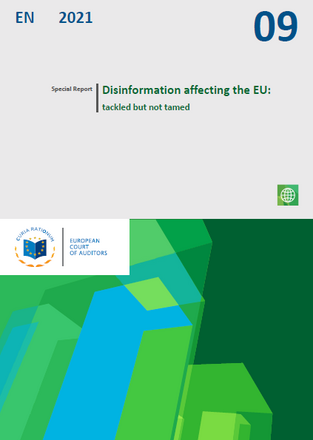
The European Commission defines “disinformation” as the “creation, presentation and dissemination of verifiably false or misleading information for the purposes of economic gain or intentionally deceiving the public, which may cause public harm”. There is no EU legal framework governing disinformation apart from article 11 of the Charter on Fundamental Rights, and responsibility lies primarily within Member States.
Although disinformation has always been present in human communications, its sheer scale and the speed with which false or misleading information can spread has changed in recent years.
This special report is the result of an audit carried out two years after the adoption of the EU action plan against disinformation, with the aim of assessing whether it is delivering its intended results.
The auditors conclude that the EU action plan is relevant but incomplete, and even though its implementation is broadly on track and there is evidence of positive developments, some results have not been delivered as intended.
The report makes a series of recommendations, summarised as follows:
- to improve the coordination and accountability of EU actions against disinformation;
- adopt a coherent EU media literacy strategy that includes tackling disinformation;
- improve the monitoring and accountability of online platforms.
The content of this article can be used according to the terms of Creative Commons: Attribution-NonCommercial 4.0 International (CC BY-NC 4.0) . To do so use the the wording "this article was originally published on the Resource Centre on Media Freedom in Europe" including a direct active link to the original article page.

